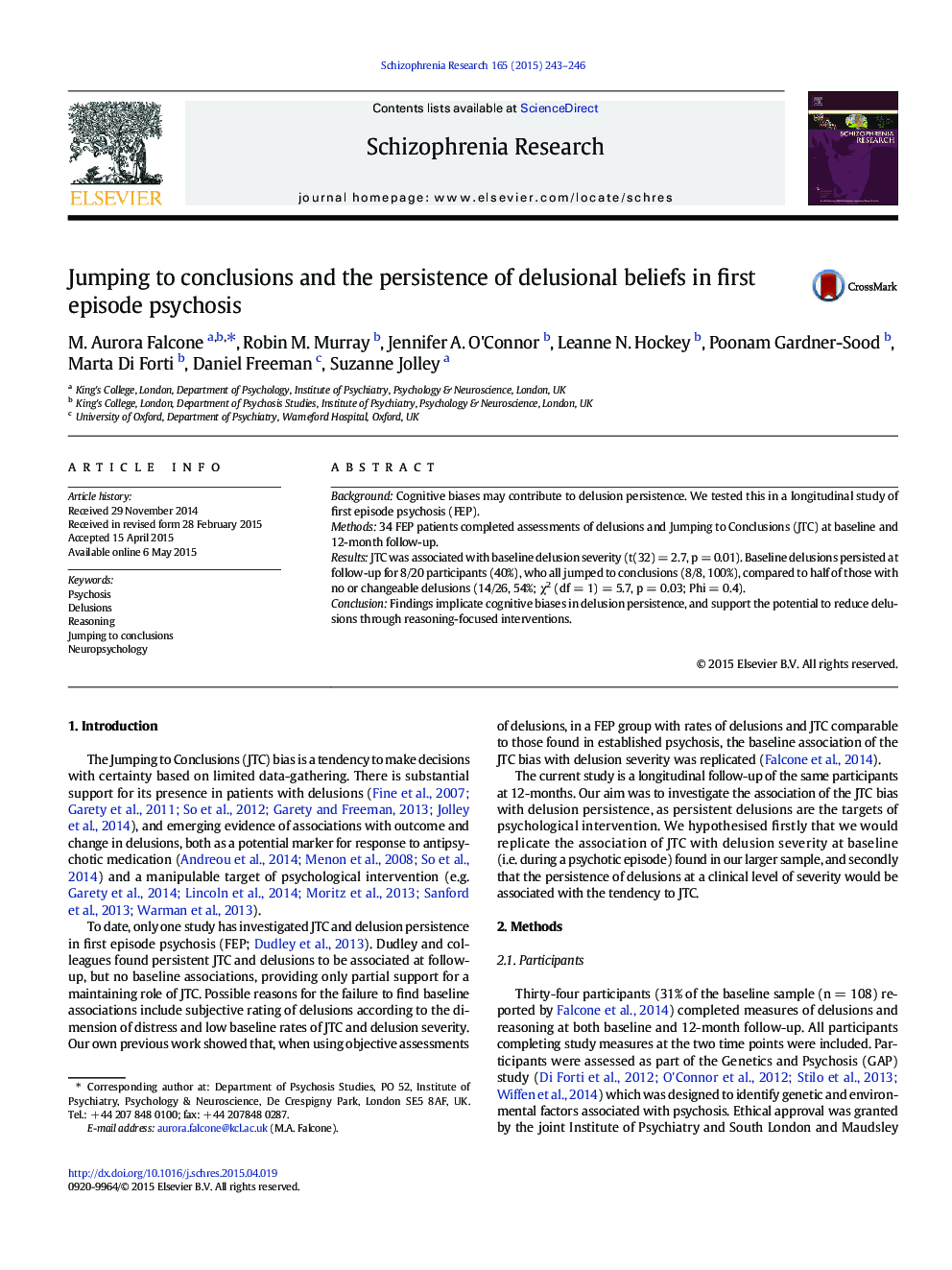| Article ID | Journal | Published Year | Pages | File Type |
|---|---|---|---|---|
| 341044 | Schizophrenia Research | 2015 | 4 Pages |
Abstract
BackgroundCognitive biases may contribute to delusion persistence. We tested this in a longitudinal study of first episode psychosis (FEP).Methods34 FEP patients completed assessments of delusions and Jumping to Conclusions (JTC) at baseline and 12-month follow-up.ResultsJTC was associated with baseline delusion severity (t(32) = 2.7, p = 0.01). Baseline delusions persisted at follow-up for 8/20 participants (40%), who all jumped to conclusions (8/8, 100%), compared to half of those with no or changeable delusions (14/26, 54%; χ2 (df = 1) = 5.7, p = 0.03; Phi = 0.4).ConclusionFindings implicate cognitive biases in delusion persistence, and support the potential to reduce delusions through reasoning-focused interventions.
Related Topics
Life Sciences
Neuroscience
Behavioral Neuroscience
Authors
M. Aurora Falcone, Robin M. Murray, Jennifer A. O'Connor, Leanne N. Hockey, Poonam Gardner-Sood, Marta Di Forti, Daniel Freeman, Suzanne Jolley,
